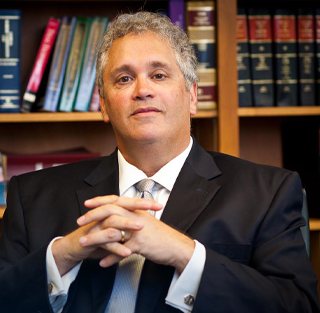What is a Catastrophic Injury?
Most Atlanta personal injury claims deal with injuries that are temporary. Someone is hurt, it has adversely affected their life but they’ll eventually be able to return to typical daily activities without serious long-term complications. Catastrophic injury cases are different.
With a catastrophic injury, the consequences are profound and long-lasting. Such permanent injuries may render the sufferer unable to ever work again. Some might not be able to care for their own basic needs. Their relationships with friends and loved ones may fundamentally change. They may have to give up on hobbies or helping causes they care about. They are no longer able to enjoy life as they once did. All of this can have profound effects on one’s mental and emotional health.
Characteristics of Catastrophic Injuries
In the medical sense, we know kinds of injuries are different medically just in terms of the intensive level of treatment they require. From an attorney’s perspective, catastrophic injuries also require more legal resources to handle successfully.
We generally define catastrophic injury as one or more of the following:
- Causes long-term, debilitating symptoms.
- Necessitates a lengthy recovery process (if recovery is even possible).
- Require constant assistance or live-in care.
- Results in permanent disability (paralysis is a good example).
- Results in a permanent loss of life quality.
Someone with a catastrophic injury may need numerous surgeries, grueling rehabilitation, or suffer some type of physical change that is going to impact them forever.
Legal Definition of a Catastrophic Injury
There is no specific legal definition of catastrophic injury in Georgia personal injury law. However, there is a provision of the state’s workers’ compensation law that provides a general sense of what it can entail. O.C.G.A. § 34-9-200.1 expressly identifies conditions that are considered catastrophic for those pursuing work injury benefit claims. These include:
- A spinal cord injury that leads to significant paralysis of the trunk, a leg or an arm.
- Amputation of a hand, arm, foot or leg that effectively results in the person losing loss of use of that appendage.
- Severe brain injury or a closed head injury with severe disturbances of sensory or motor skills, the ability to communicate, remain conscious or results in a serious episodic neurological disorder.
- Second- or third-degree burns over a quarter of one’s body as a whole or at least 5 percent of one’s hands or face.
- Total industrial blindness.
- Any other injury wherein its nature and severity prevent the worker from being able to perform the work he/she did prior AND any work available in substantial numbers within the national economy for which the employee would otherwise be qualified.
5 Common Types of Catastrophic Injury
There is a sizable list of injuries that could fairly be labeled, “catastrophic,” but the six most common cases we see are:
Traumatic Brain Injuries
In the U.S. alone, an estimated 13.5 million people live with a disability due to traumatic brain injury. There are roughly 288,000 hospitalizations annually for TBI.
Spinal Cord Injuries
There are about 17,800 new cases of spinal cord injury in the U.S. every year, with an estimated 294,000 people living with a spinal cord injury.
Severe Burns
There are an estimated 486,000 people a year in the U.S. who are treated in hospital emergency departments annually for burns. Some burns may be treated at private medical offices, clinics, and community health centers, though these tend to be less severe.
Amputations
Approximately 185,000 amputations occur in the U.S. each year, with about 2 million people living with limb loss.
Multiple Fractures
Roughly 6.3 million fractures occur in the U.S. every year. The average person can expect to suffer at least two bone fractures during the course of their life. Not all of these, however, are the result of someone else’s negligence or wrongdoing.
Why Catastrophic Injury Victims Need Legal Representation
It’s rare that an insurer will offer to pony up the full cost of all a person’s past and future medical expenses, lost wages, and pain and suffering damages. It requires the assistance of an experienced Atlanta catastrophic injury attorney prepared to conduct a thorough investigation, review your medical records, consult and contract with expert witnesses, and assess the seriousness of your injuries (to get an accurate accounting of your monetary damages).
If you have suffered a catastrophic injury in Atlanta, our dedicated legal team can help.
The foregoing answers are not legal advice and are merely a general overview. You are advised to consult a lawyer to address your specific situation. For more information or to inquire about a free consultation, contact Stephen D. Apolinsky, an experienced Atlanta injury attorney, at Apolinsky & Associates at (404) 377-9191 or email him at steve@aa-legal.com.



